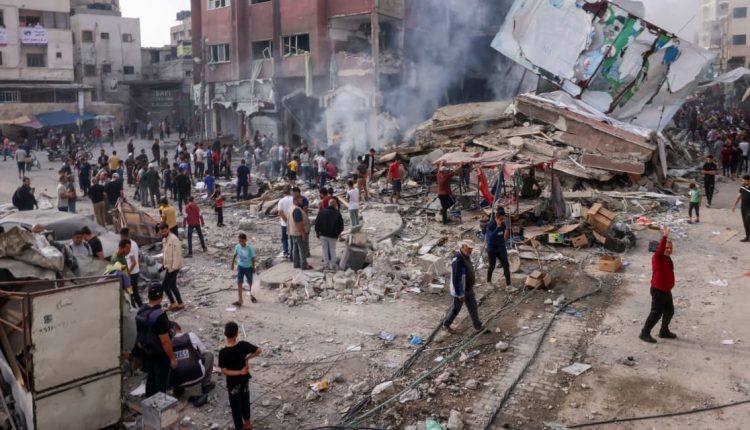The International Monetary Fund on Tuesday put itself in the soft-landing camp for the global economy as inflationary pressures ease. But it sees anemic growth and numerous challenges ahead—from volatility in commodities markets to China’s troubled property sector.
In its World Economic Outlook as part of the IMF and World Bank annual meetings in Morocco, the IMF projected 3% growth this year, and 2.9% next year, down from its 3% projection for 2024 earlier last summer. The figures are also lower than the 3.5% logged last year and far below the historical average.
However, an easing of inflationary pressures fed into an uncharacteristically optimistic take from the world’s risk watchers with a global growth projection higher than other analysts’ expectations. That glimmer of optimism rests on an improved outlook for the U.S., with the IMF raising its growth projections for the country to 2.1% this year, up from 1.9% estimated in July, and a 1.5% increase next year, up from its 1.0% forecast.
The forecasts comes against a backdrop where economists are divided about the impact of the Federal Reserve’s rate hikes as they work their way through the U.S. economy, as well as household finances beginning to weaken and not act as a buffer.
The fragile growth outlook could easily be spoiled. The IMF warned that one risk is more volatile commodity prices amid climate and geopolitical shocks, jeopardizing some of the easing inflation that feeds into its soft-landing scenario.
That risk gained even more attention after Hamas’ surprise attack on Israel this weekend that led Israel to declare war on Hamas. For now, the IMF’s top economist Pierre-Olivier Gourinchas cautioned the conflict could result in energy-supply shocks, raising oil prices and reducing growth.
In a press briefing, Gourinchas said that a 10% increase in oil prices could hurt global economic activity by 0.15% the following year, and increase global inflation by about 0.4 percentage points. That said, he stressed that it is “really too early to jump to any conclusion here.”
The IMF‘s projections, made before the conflict erupted in Israel and Gaza, saw more trouble in Europe and China. The IMF reduced its estimate for the euro area to 0.7% this year and 1.2% next year, versus 0.9% and 1.5% in its summer forecast.
The IMF also revised its China forecast lower to 5% this year and 4.2% next year, down from 5.2% and 4.5%, as the IMF said the country’s growth momentum post-Covid is fading. The financial distress engulfing developer Country Garden as it edges toward default signals that real estate distress is spreading to stronger developers even as Beijing has eased policy.
China’s economic troubles also pose a risk to the global growth outlook, especially as the latest trouble for developers comes alongside sliding real estate investment and housing prices, which in turn hurts the revenue of local governments depending on land sales and further strains public finances. Mixed in is uncertainty in the labor market, which has dented confidence among consumers about the future of the property market.
Gourinchas noted further stimulus measures are welcome but “need to be at scale” given the seriousness of the problem. Actions could include restructuring struggling property developers to make sure the financial strains remain localized to the real estate market, and don’t spread to the broader financial system. To restore consumer confidence, Gourinchas said China has to clean up the real estate sector.
The latest difficulties for Country Garden show that it isn’t “too big to fail,” especially if it doesn’t meet coming payment obligations. That could indicate Beijing either has a higher pain threshold, a plan to offer broader economic stimulus, or it has greater confidence in the underlying economy, Rory Green, TS Lombard’s head of China, said in an email. Green expects it’s a mix of the first two.
That could mean investors are in for more bumpiness but could find a floor at some point as Beijing leans more on stimulus.
Write to Reshma Kapadia at [email protected]
Read the full article here

